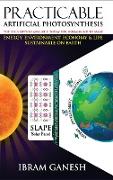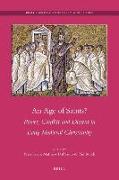Practicable Artificial Photosynthesis - The Only Option Available Today for Humankind To Make Energy, Environment, Economy & Life Sustainable on Earth
BücherAngebote / Angebote:
The "Practicable Artificial Photosynthesis (PAP)" technology described in this book facilitates one to harvest sunlight to meet all the energy needs of the society without any back-up from fossil fuels to meet all the energy needs of the society by using carbon dioxide and water as energy storing materials. The PAP process can completely eradicate the poverty and unemployment across the globe, and it can solve the problems of CO2 associated global warming and the related social cost of carbon problems completely. Four new technologies invented and discovered by the author of this book as a part of developing this comprehensive PAP process including a brand-new technology "Semiconductor and Liquid Assisted Photothermal Effect (SLAPE)" to generate electricity from sunlight with highest efficiency at lowest expenditure have also been presented and described in this book for the first time. Ultra-low cost EPDM rubber based membranes needed for alkaline electrolyzers and fuel cells also introduced in this book.
About the Author: Dr. Ibram Ganesh, M.Sc., Ph.D. (Chemistry) is presently a scientist at International Advanced Research Centre for Powder Metallurgy and New Materials (ARCI), Hyderabad, India. He has carried out his Ph.D. work at IICT, Hyderabad, and obtained his doctoral degree in the year 1999. He received BOYSCAST and IUSSTF fellowships from Department of Science and Technology (DST), Govt. of India, to do post-doctoral research at University of Aveiro, Portugal, and Emory University, Atlanta, Georgia, USA, respectively, for one year period each. He invented a brand-new technology called "Semiconductor and Liquid Assisted Photothermal Effect (SLAPE)" for generating electricity from sunlight. He also experimentally discovered that electrochemical reduction of CO2 to CO is a reverse reaction of CO oxidation in air that does not involve protons in the reduction process. He is an author of 98 publications and inventor of 10 patents, and one of the top 2% scientists in the world.
Folgt in ca. 15 Arbeitstagen




